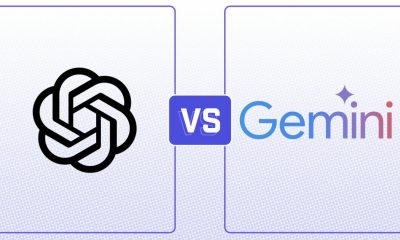Entertainment
What worked, what didn’t, and where to go next

Warning: The following post contains spoilers for 13 Reasons Why Season 3, as well as mentions of sexual assault.
13 Reasons Why Season 3 wasn’t screened for critics, and that alone gave me pause. The only explanation seemed that Netflix wanted to avoid negative reviews before the show’s August 23 release, so I braced for the worst until that day came.
Though often sloppy or ham-fisted, 13 Reasons Why Season 3 is, at the very least, less offensive and irresponsible than I’ve come to expect from the show. It’s a bloated season, often treading water and creating cumbersome subplots to pad 13 hour-long episodes. And it’s an emotional rollercoaster – not only because of heavy topics the show loves to tackle, but because it continues to struggle with how exactly to approach them, often to mixed effect.
Netflix confirmed in the lead up to Season 3 that the show’s fourth season would be its last. Given how much of this season was devoted to talking about chances, we look at what 13 Reasons Why can do to leave a responsible legacy.
How do we solve a problem like Ani?

She doesn’t even go here!
Image: David Moir/Netflix
From the first teaser to the last seconds of Season 3, I never did get an answer for my most pressing question of the season: Not “Who killed Bryce Walker?” but “Who and why is this new girl?”
Ani, poor Ani and actress Grace Saif, is truly inexplicable, dimensionless, and lacks any purpose besides being a conduit into the private life of Bryce Walker. Even then she gets no action of her own, unless you count all the sex with Bryce after shoddily plotted and borderline nonexistent chemistry (if it exists, I imagine the 13 Reasons Why handbook as a choose-your-own-adventure of soap tropes, with “idk sex” as the only contingency plan for narrative roadblocks). This should add to Ani’s suffering and desire to catch the murderer when Bryce is found dead, but she’s so flatly crafted that her interest in the case just feels like an extension of her self-appointed role as Liberty High’s central intelligence agency.
Ani on 13 Reasons Why is like every Downton Abbey character who ever eavesdropped while standing outside a door, all rolled into a single teenager.
— Jen Chaney (@chaneyj) August 23, 2019
I’ve had plenty of issues with 13 Reasons Why over the years, but like any viewer, I’ve invested. I’ve put in the time, connected with characters, cried for Hannah and Jessica, exclaimed in fury at countless other things. Ani feels like an intruder into the audience’s relationship with these characters as much as an intruder in their world; I don’t need a stranger, a plant, to tell me that secrets ferment or that toxic masculinity is the scourge of society and of this school especially, because I’ve been here, watching, paying attention, lodged in the thick of the action long before she was. We never see how or why these highly traumatized and secretive teens have chosen to trust this new presence, and that’s because they never would.
By the end of the season, this character, who neither adds nor subtracts to any storyline but simply exists from scene-to-scene, has become the primary confidante of multiple characters, including Monty’s ex-lover and Sheriff Standall. The next season will undoubtedly continue to use her as a deus ex machina, so can we maybe write this poor girl some actual history and motivation, please?
The Tyler trajectory

The characters on ’13 Reasons Why’ banded together to protect Tyler and promote his mental health.
Image: David Moir/Netflix
Perhaps the most shocking and painful part of Season 2 was Tyler being raped in the final episode – after leaving and return to the school for his own mental health – and then immediately heading to the Spring Fling dance with an assault rifle and explosive vest intended to kill many of his fellow students – and himself.
The storyline’s inclusion itself wasn’t the problem, but like so much of Season 2 and 13 Reasons Why, the issue was how it was handled: Black and white, cut and dry, cause and effect, correlation and causation. Season 3 is sometimes clumsy but overall kind to Tyler. Clay and the others form almost a protective ring around him, keeping him company, checking in on him, talking him through the aftermath (sometimes inadvisably in lieu of a licensed mental health professional, though he does finally end up talking to Dr. Singh).
But this is the third season in a row that has ended with something tied to Tyler and his guns. There has been no shooting, mercifully, but also no talk of gun control and a lot of legitimizing a potential shooter as mentally disturbed instead of questioning his access to these weapons and the kind of environment that even suggests these actions as viable to him.
Devin Druid has shouldered noticeably more with each season and gives a truly remarkable performance, especially in Tyler’s confession scene with Clay. I’m about to spend another year of my life terrified for Tyler, and I want him to be okay.
Don’t humanize the rapists

Just because your grandpa is racist doesn’t mean you have to assault people!
Image: David Moir/Netflix
Tyler gets a second chance because he didn’t do something horrible to his fellow students, but it’s a lot harder to afford that benefit to characters who did. As with Season 2, Season 3 spends an inordinate amount of time humanizing serial rapist Bryce Walker through flashbacks – a character study that, even if it were appropriate, would require writing far beyond the limitations of 13 Reasons Why. The same goes for Monty, who raped Tyler in that horrifying Season 2 finale, and who we learn comes from an abusive home and struggles with his own sexuality.
It is important to imagine people complexly, to not define a person by their worst moment, but that’s different when the worst moment is a bad tweet rather than sexual assault. Bryce is a repeat offender. Season 3 declares him sick, even sends Bryce to therapy (with Hannah’s former counselor, which is wildly unethical), but the show is incapable of showing more than one shade of Bryce at once. He vacillates between a conspicuously polite and well-behaved young man who greets even his enemies with unironic warmth, and the textbook villain from Season 1 who speaks frankly and crassly about fucking whoever he wants and coming out on top. That jarring dichotomy is at play right up until the death scene where he pleads for forgiveness then growls that he will “fucking kill” Zach the next time he sees him.
Neither Bryce nor Monty survive the season, which can’t be considered the punishment for their crimes. The actual crimes go unpunished; Bryce was never convicted of rape, and Monty was supposed to serve a sentence, not die in prison. Bryce’s lack of consequence seemed primed for commentary on the justice system, but Season 3 did nothing to interrogate it. With both deaths, the show seems to ask: “Is this what you wanted? Is this fair?” by killing these two off.
If the show is trying to send a message, that message can’t be that rape doesn’t define a person and that they’ll get a second chance, or, as Bryce puts it, that the world won’t let them have a second chance. The cost of a second chance, if someone does get one, is atoning for previous crimes, no matter how long it takes. Until his final moments, Bryce wanted someone to absolve his guilt, but that guilt won’t disappear any more than his victims’ pain. A second chance is not the same as a clean slate.
Given Monty’s fate the show’s trajectory so far, Season 4 will likely investigate his murder and now build out this character whose name I couldn’t remember until six episodes ago. He and Bryce are both products of abuse and toxic masculinity, so why the heck won’t the show address that or give us more positive role models?
Keep listening to survivors

Image: David Moir/Netflix
More than once, Season 3 steered dangerously close to “Has feminism gone too far?” particularly with Casey’s militant activism and disregard for Bryce’s funeral (“Fuck their pain,” Casey says of the grieving parents of a murdered child). Standing up and protesting are imperative, but the show plants these actions in situations where it’s impossible for activists to emerge victorious.
Jessica suggests to her fellow H.O. members (I do love that acronym) that they’ll catch more flies with honey than vinegar, but Jessica herself isn’t immune to extremes; her platform as class president repeatedly conflates athletes with rapists and talks of banning sports rather than teaching consent.
But the finale scene in the gymnasium is powerful, with Jessica’s speech imploring the school and administration to take sexual assault seriously, with survivors standing up and being seen. It also includes male survivors and sets the stage for allyship and activism to be explored further in Season 4. I would so much rather see this than the Bryces of the world garnering sympathy. Millions of people watch 13 Reasons Why, and many of them could benefit from seeing that 1) rape is a vile and punishable crime, and 2) their victims are people. Seeing Jessica reclaim her body and sexuality was powerful, and then to see her use her voice to uplift others was one of the better things this show has done.
Set Tony free

Let this grown adult with facial hair take his talents elsewhere!
Image: David Moir/Netflix
If Ani’s entire existence is as tall an order as it is, patient zero for 13 Reasons Why‘s obsession with this perplexing narrative tool would be one Tony Padilla. In the novel 13 Reasons Why, Tony keeps a copy of the tapes and has minimal interaction with Hannah. In the show, he became Clay’s spirit guide, counselor, mentor, and friend, a big brother and adult presiding over children in pain.
Three seasons in, that role hasn’t changed, and Tony continues to be a catchall problem-solver for his peers who are in over their heads. It’s getting harder and harder to swallow, not just because the character is written as a grownup, but because Christian Navarro looks more conspicuously adult than many of his baby-faced costars. His performance outstrips the writing, per 13RW tradition, and he even carries an ICE storyline through the end of the season (an extremely half-assed storyline that should have been left to Orange is the New Black). Tony has always felt incongruous with the show’s more conventional high-school tropes and scenery, now more than ever.
Help Clay before it’s too late

Portrait of a troubled young man (2019).
Image: David Moir/Netflix
13 Reasons Why repeatedly indulges in the “angry young man” trope, but Season 3 sees Clay become more of an impediment to his own benevolence than ever. Sometimes he’s a genuinely good guy, like when he comes up with the plan for everyone to take care of Tyler. Other times, however, he’s intrusive and aggressive, lashing out at others in the name of doing good. Ani points out his predisposition to jealousy, and we see that snowball alarmingly fast into murderous rage on the football pitch with Bryce.
As with Bryce and Monty, the show once again dances close to addressing toxic masculinity, but doesn’t address it head-on. Contrary to those characters, Clay’s home life is copacetic, but his rage persists. He’s also noticeably more generous with men than women; the same Clay who was furious last season that Jessica was terrified to name her rapist is immediately and unquestioningly understanding when Tyler doesn’t want to do the same. He demonstrates the subtle internalized biases that people of every gender are exposed to, and the show has 13 episodes left (it should be less, but that will never happen with a title like this one) to prove his merit.
13 Reasons Why is now streaming on Netflix.
If you want to talk to someone or are experiencing suicidal thoughts, text the Crisis Text Line at 741-741 or call the National Suicide Prevention Lifeline at 1-800-273-8255. Here is a list of international resources.
If you have experienced sexual abuse, call the free, confidential National Sexual Assault hotline at 1-800-656-HOPE (4673), or access the 24-7 help online by visiting .

-

 Entertainment7 days ago
Entertainment7 days agoNASA discovered bacteria that wouldn’t die. Now it’s boosting sunscreen.
-

 Business6 days ago
Business6 days agoTesla drops prices, Meta confirms Llama 3 release, and Apple allows emulators in the App Store
-

 Business5 days ago
Business5 days agoTechCrunch Mobility: Cruise robotaxis return and Ford’s BlueCruise comes under scrutiny
-

 Business4 days ago
Business4 days agoTesla layoffs hit high performers, some departments slashed, sources say
-

 Entertainment6 days ago
Entertainment6 days ago‘The Sympathizer’ review: Park Chan-wook’s Vietnam War spy thriller is TV magic
-

 Business5 days ago
Business5 days agoMeta to close Threads in Turkey to comply with injunction prohibiting data-sharing with Instagram
-

 Entertainment4 days ago
Entertainment4 days agoChatGPT vs. Gemini: Which AI chatbot won our 5-round match?
-

 Business3 days ago
Business3 days agoFormer top SpaceX exec Tom Ochinero sets up new VC firm, filings reveal





















